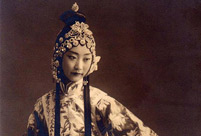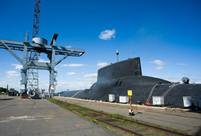

Official backing
As China aims to shift its sporting focus from elite gold-medal-winning athletes to improving general levels of public fitness and well-being after the 2008 Beijing Olympics, boosting the sporting sector has become a top priority for the central government.
In October, the State Council, China's Cabinet, issued a national development plan for the sports industry, urging the General Administration of Sport of China, the governing body, to loosen its tight grip on the untapped market and allow a larger number of businesses and private investors to enter the industry long dominated by State-owned companies. The policy has been ratified, but has not yet been fully implemented.
It's no surprise that so many players are reaching for a slice of the cake-China's sporting industry is expected to be worth more than 5 trillion yuan by 2025, when it's likely to account for about 1 percent of GDP compared with 0.6 percent in 2012, according to State Council projections.
Under the plan, the national sports administration and its branch administrative centers would relinquish the approval and oversight rights for commercial and mass sporting events to "unburden enterprises to the utmost and give vitality to all kinds of sporting resources", according to a statement released by the State Council.
Currently, all sporting events must be approved by the GASC, which also charges administration fees based on the scale and commercial prospects of the event concerned.
The proposed changes were welcomed by Chinese sporting luminaries, including former NBA star Yao Ming, a member of the Chinese People's Political Consultative Conference, who last year submitted a similar proposal to the nation's top political advisory body.
"The government decision (to free-up the sports market) provides a strong push to start the wheels of the sports industry rolling," said Yao, who owns the Shanghai Sharks CBA team.
 |  |
 Campus belle in HK goes viral online
Campus belle in HK goes viral online Lugou Bridge in 78 years: July 7 incident
Lugou Bridge in 78 years: July 7 incident Get ready for the world's most thrilling water rides
Get ready for the world's most thrilling water rides Evolution of Chinese beauties in a century
Evolution of Chinese beauties in a century Creative graduation caps of ‘vigorous elves’
Creative graduation caps of ‘vigorous elves’ Typhoon class strategic Submarine in photos
Typhoon class strategic Submarine in photos Japan’s crimes committed against "comfort women"
Japan’s crimes committed against "comfort women" Legendary life of a bee-keeping master in Hainan
Legendary life of a bee-keeping master in Hainan 4-year-old cute 'monk' spends summer holiday in temple
4-year-old cute 'monk' spends summer holiday in temple Top 10 most competitive Chinese cities in Belt and Road Initiative
Top 10 most competitive Chinese cities in Belt and Road Initiative Top 10 travel destinations in the world
Top 10 travel destinations in the world Xi talks peace at war memorial
Xi talks peace at war memorial Vietnam-US bond less rosy than it appears
Vietnam-US bond less rosy than it appears Furry funeral
Furry funeral Infrastructure investment boosted to stabilize growth
Infrastructure investment boosted to stabilize growth Day|Week